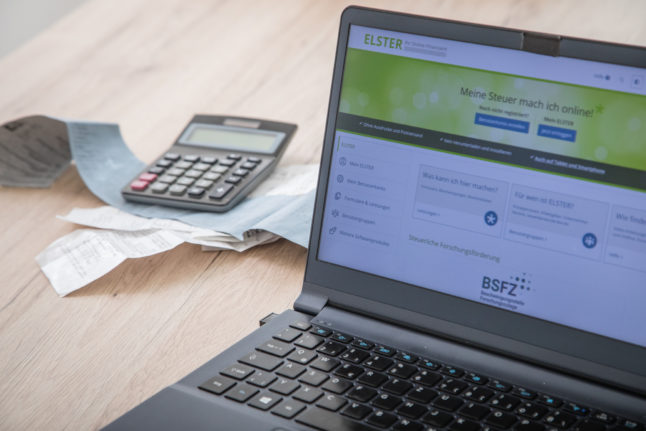Non-native German speakers who need to file taxes this year are in luck – ELSTER, Germany’s online portal for self-reporting taxes, is now available in English.
German residents who are required to file taxes, including freelancers and self-employed workers, may have used ELSTER before to submit tax information to the Federal Central Tax Office (Bundeszentralamt für Steuern).
ELSTER, which is a kind of clunky acronym for ‘ELektronische STeuerERklärung’ or electronic tax declaration, was designed by the tax office and serves as the official online tax submission portal.
Now, visitors to the ELSTER webpage can click on three dots in the top right corner of the screen to reveal a drop down menu with a link to the English version of the site. Text on the website – and its tax forms – are then automatically translated.
However, it should be noted that translations are automated via DeepL, so some phrases are bound to be a bit wonky.
Also, ELSTER’s English service is not without limitations, such as more detailed instructional pages and explainer videos that are still only available in German. So for those with little to no German comprehension, it may still be advisable to have a German friend or colleague on-call when you begin to file.
READ ALSO: 8 unlikely tax breaks that international residents in Germany need to know
Who can file their taxes with ELSTER?
Anyone who is filing taxes in Germany can use ELSTER to do so electronically.
Freelancers and self-employed workers are required to file taxes in Germany, as are people who earn more than €410 in additional income (like from rental income).
Additionally, people must submit a tax return if they have received more than €410 in wellfare benefits, such as unemployment (Arbeitslosengeld), sickness (Krankengeld), parental allowance (Elterngeld) or short-time working benefits (Kurzarbeitsgeld).
Full and part-time employees generally aren’t required to file taxes in Germany. But some wage and salary workers choose to file in order to get a tax refund, especially when they qualify for specific tax write-offs.
The filing deadline for taxes was extended during Covid, so taxpayers have until September 2nd this year to file for income earned in 2023. Next year the deadline will return to normal, so a 2024 tax return will be due by July 31, 2025.
READ ALSO: What are the 2024 deadlines in Germany to submit my tax return?
If you wish to file your German taxes electronically, you will need to create an account with ELSTER, which requires a residence permit with an activated eID function.
While ELSTER is Germany’s official tax filing portal, there are also several apps with an English-language function which residents can use to file their taxes, such as TaxFix and Wundertax.




 Please whitelist us to continue reading.
Please whitelist us to continue reading.
Member comments